

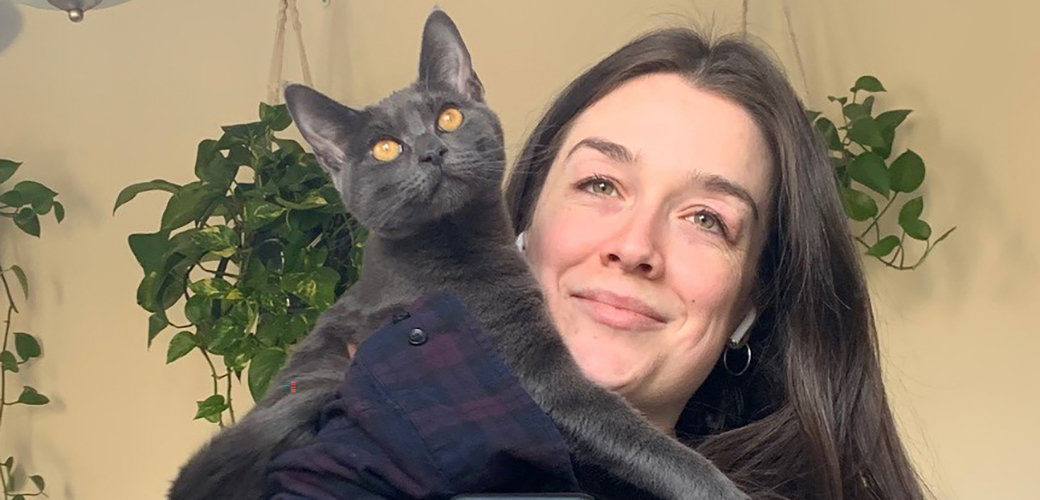
Mariena W., a publicist living in New York City with her nine-month-old gray cat named Bastet, is among the thousands of people who adopted an animal during the COVID-19 pandemic. Like many, she had no intention of returning her new pet, even as pandemic restrictions lift.
“Bastet truly brought me back to life and gives me so much joy,” says Mariena, who suffers from depression. “She forced me to get back into a healthy routine. And at the same time, she needed me.”

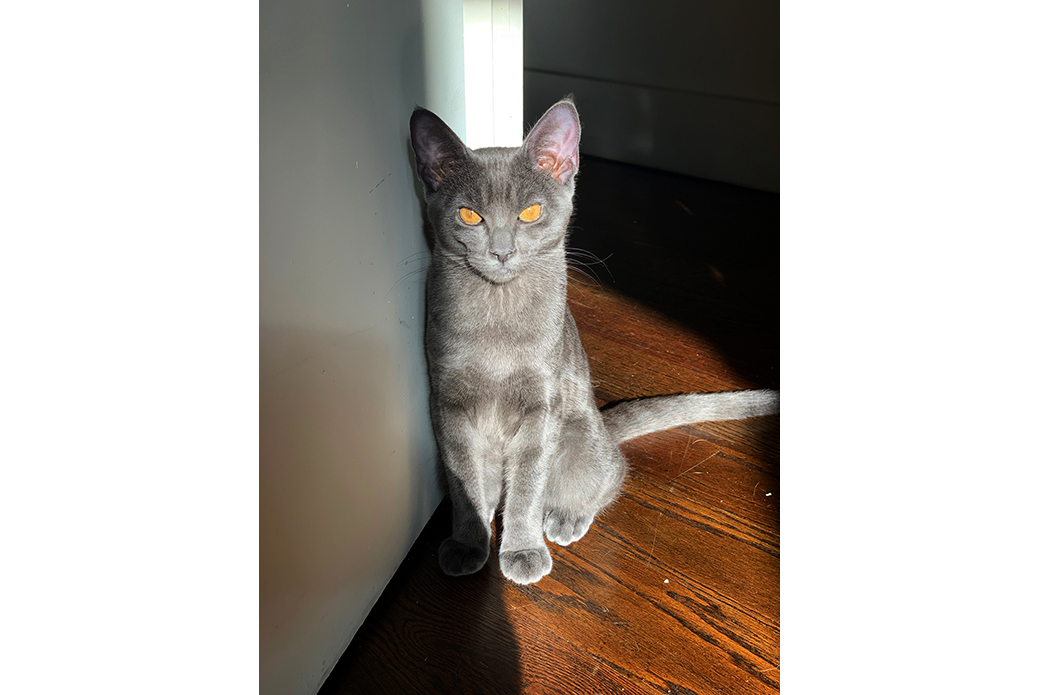
Pets are Being Relished, Not Returned
In response to alarmist news reports and anecdotes of people supposedly returning their “pandemic pets,” the ASPCA conducted a public poll on the topic of pet acquisition and retention during the pandemic to separate fact from fear.
“Our poll found that the overwhelming majority of dogs and cats acquired during the pandemic are still in their homes,” says ASPCA CEO Matt Bershadker. “People still recognize and appreciate the essential role pets play in their lives.”
The poll of 5,020 respondents revealed that close to one in five households acquired a cat or dog since the COVID-19 crisis began, which accounts for approximately 23 million American households. Of those households, 90% of dogs and 85% of cats are still in their homes.
And while some adopters are concerned about how returning to their offices will impact their pets, 87% of respondents, like Mariena, are not considering rehoming their pets.


In fact, Mariena is helping Bastet adjust to a new routine. In preparation for returning to her office in September, Mariena leaves her house for a while each day to help Bastet get used to her absence. She also installed a cat cam revealing that Bastet mostly sleeps when she is away.
“Bastet knows my footsteps when I walk up the stairs to our apartment and is always either running down the hall when I open the door or sitting on the other side waiting for me,” Mariena says. “She does hold me accountable when I work late!”

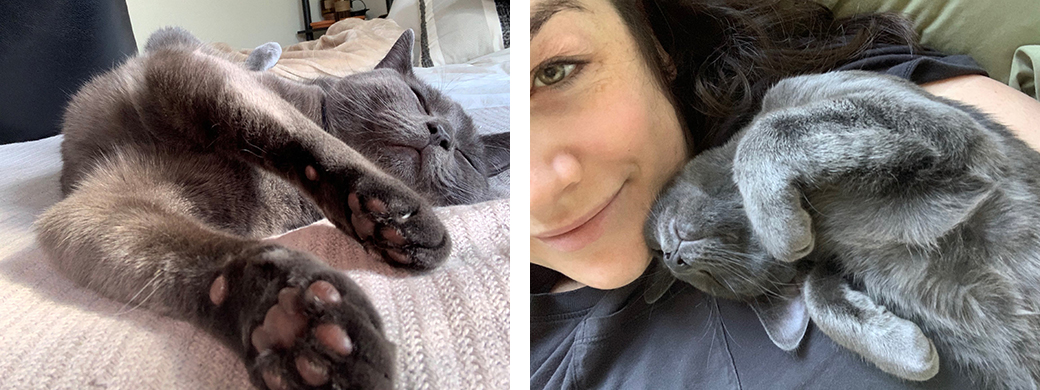
Having the Courage to Adopt Again
Mariena had two cats growing up, but when her last cat, Dobber, passed away at the age of 19, Mariena was hesitant to adopt a new cat because she didn’t want to experience such a searing loss again.
Then came the pandemic, and Mariena’s depression worsened. Her therapist encouraged her to adopt a pet, explaining how it might be beneficial to care for and love an animal who would love her back.

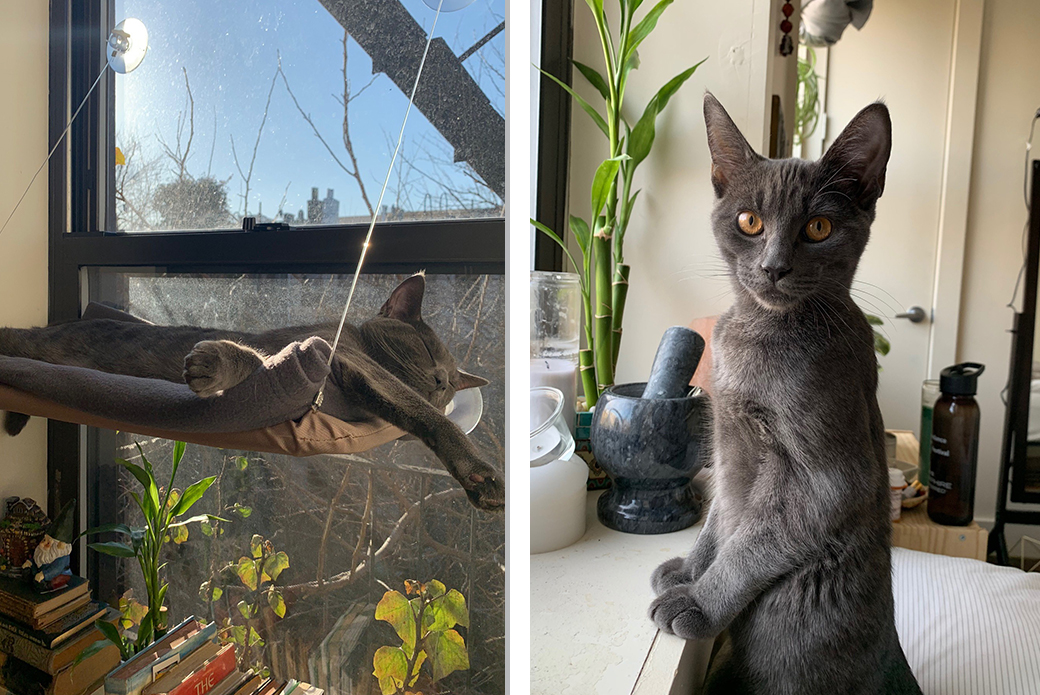
“I fought it for a while, even telling myself I was no longer a ‘cat person,’” Mariena says. “But looking back, it was because Bastet and I hadn’t yet found each other.”
Mariena applied for a cat on the ASPCA’s website and was soon contacted by Dale Spies, an ASPCA Matchmaker.
“I saw photos of another cat first, and then Dale showed me Bastet’s photo,” Mariena says. “As soon as I saw her, I thought, ‘that’s my family—I need her.’ It was meant to be.”

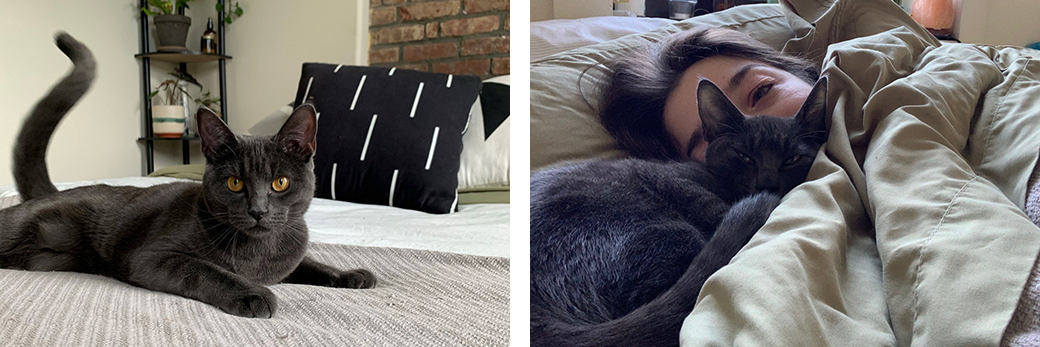
A Strong Bond
Mariena says Bastet, whom she named after an Egyptian goddess, adjusted quickly, exploring the house on her own after just two days.
“I made my room very comfortable for her and she knew right away that I was her new mom,” Mariena says. “Our first night together, she crawled into my blankets and cuddled under my chin. She follows me everywhere.”

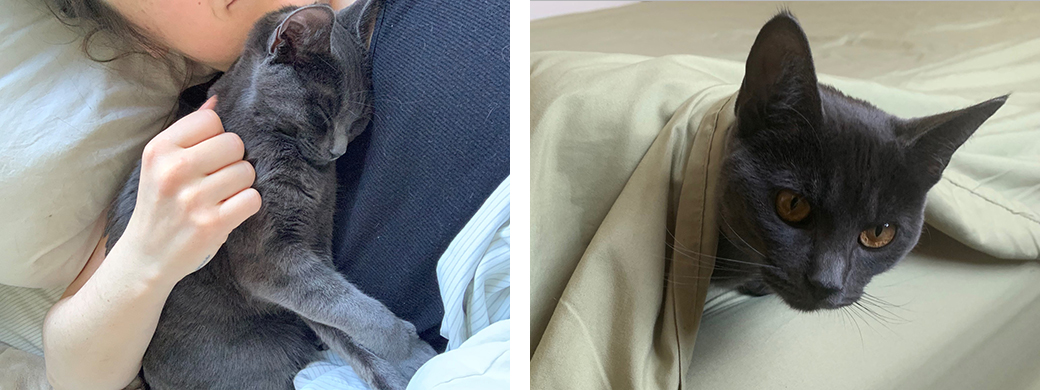
Bastet enjoys Mariena’s collection of plants, especially her own cat grass. “She loves it when I water the plants. As soon as I get the watering can she runs over to me,” says Mariena. “She even sits on my shoulder while I water them.”
Bastet has an animal pal too: her roommate’s dog, a Lab/pit bull-mix named Dolly.


“Bastet loves Dolly,” she says. “Dolly stands in the living room and wags her tail while Bastet rubs all over her. They head butt and smell each other and lie down together. It’s pretty cute.”
Mariena says the impact of Bastet’s presence in her life has been enormous.

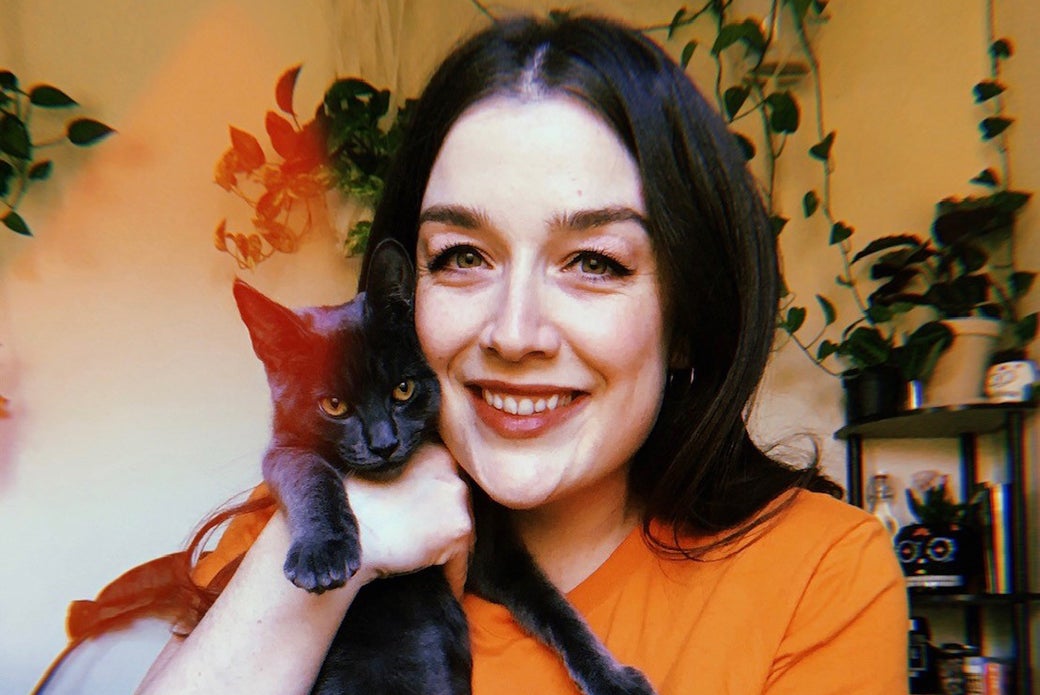
“I tell her all the time that we saved each other’s lives,” Mariena says. “I know it sounds dramatic, but I do believe that we did. I’m so happy to give her a loving home, and she loves to be my little shadow in the morning.”
Source: Read Full Article